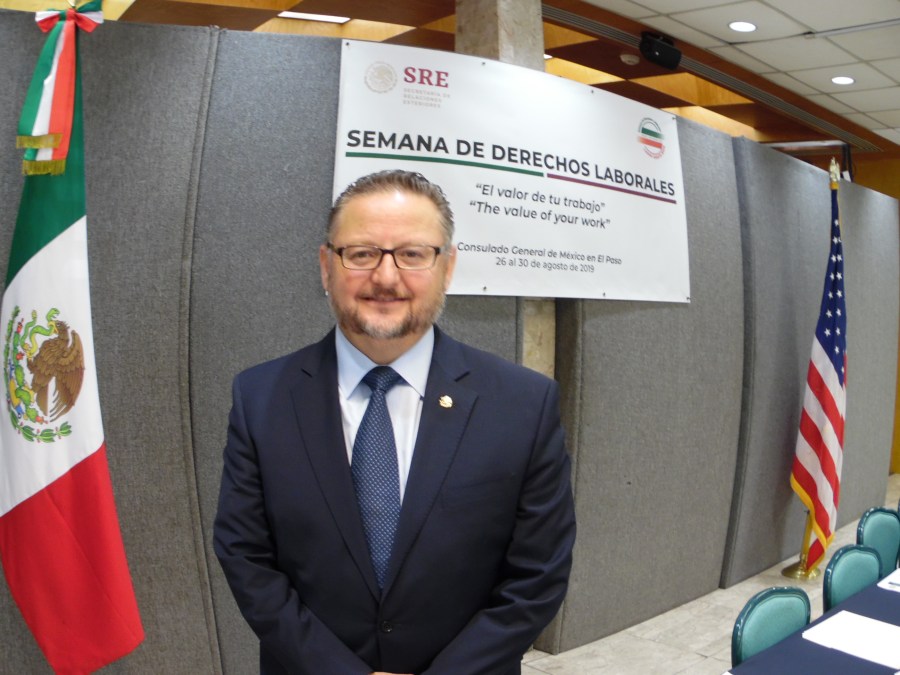EL PASO, Texas (Border Report) — The Mexican consulate and the U.S. Labor Department office in El Paso on Friday signed a cooperation agreement to fight wage theft and other labor violations committed against immigrants.
The consulate said it will begin a weeklong labor-rights education campaign on Monday and encourage Mexican citizens who experience workplace exploitation to file a complaint with the local Wage and Hour Division of the Labor Department.

“Everyone who works in the United States, regardless of immigration status, has rights in the workplace that are guaranteed by law,” said Mauricio Ibarra Ponce de Leon, Mexican consul general in El Paso. “We will support our community and ensure that their labor rights are being respected. This agreement allows us to send people who come to us to the appropriate (U.S.) authority.”
Jacobo Valenzuela, a representative of the Wage and Hour Division in El Paso, said his office receives some 600 labor-related complaints a year. Most complaints come from workers in the restaurant, construction and agricultural industries, he said.
Ibarra said wage-theft — which occurs when an employer short-changes an employee for hours worked, refuses to pay overtime already performed or withholds payment altogether — isn’t the only issue faced by immigrant workers on the border. The weeklong Spanish-language education campaign known as “Labor Rights Week” will also include information on filing workplace injury claims, sexual harassment and human-trafficking complaints, as well as workplace safety issues.
This is a propitious time for labor-rights enforcement because the agricultural season in the El Paso region has started, said Carlos Marentes, executive director of the Border Farm Workers Center. Onions are being harvested now in fields in Luna, Otero, Doña Ana, El Paso and Hudspeth counties, and the chile harvest is less than a month away, he said.
“The workers are often paid by the piece, by the bucket or by the bin. This is hard work and sometimes what they produce does not equal the minimum wage. Regardless, the employer has to pay them at least the minimum wage, but often that doesn’t happen,” Marentes said, adding that he and his staff have been educating agricultural workers about their rights for more than two decades.
He agrees that more labor-rights education is needed because the workers often are reluctant to complain — either because they don’t know their rights or don’t want to risk being fired. “Many continue to work because they say a little income is better than no income, but that’s not right,” he said.
Norberto Villarruel, a retired El Paso farmworker, said he was the victim of wage theft on several occasions. “They paid you cash and they deducted taxes, but they never gave you a receipt and you could never recover your taxes,” said Villarruel, who picked onions, chile and other crops in Deming and Hatch, New Mexico, and Arizona.

Villarruel, who became a seasoned picker, said his typical daily wage was about $30. Because harvesting takes place during the hottest months of the year, contract farm workers in the Southwest typically begin the workday before sunrise and must be done by 2 p.m., he said.
For information on how to file a labor-related complaint, people can call the Wage and Hour Division at (915) 534-6426 or visit 700 E. San Antonio Ave. in El Paso. Information is also available online.
















